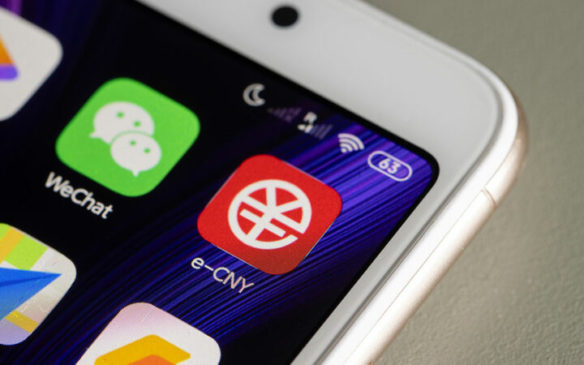The transaction is part of SHPGX’s efforts to provide a solid response to the Shanghai municipal government’s requirements to use the digital yuan in cross-border trade.
Chinese Central Bank Digital Currency (CBDC) – digital yuan or e-CNY – has been used for the first time to settle a cross-border oil transaction. According to the Shanghai Petroleum and Natural Gas Exchange (SHPGX), the deal was closed by PetroChina International which bought 1 million barrels of crude on October 19. The exact sum of the deal has not been revealed, and the name of the seller is unknown as well.
The transaction is part of SHPGX’s efforts to provide a solid response to the Shanghai municipal government’s requirements to use the digital yuan in cross-border trade. As the exchange has said, the deal marks “another major step forward” for e-CNY. Notably, it comes after a series of payments for oil and gas imports involving the traditional Chinese yuan.
Back in March, the yuan became the most widely used currency for cross-border transactions. At that time, the yuan was first used for a liquified natural gas (LNG) purchase on SHPGX. The French TotalEnergies was selling LNG to the China National Offshore Oil Corporation (CNOOC).
For the first quarter of 2023, the yuan was used in 49% of China’s cross-border transactions, topping the US dollar for the first time. Cross-border payments and receipts in yuan rose to a record $549.9 billion in March from $434.5 billion a month earlier. Seeing the growing success of the RMB in cross-border transactions, Chinese authorities are expecting the same from the digital yuan.
Digital Yuan Testing
The Hong Kong Monetary Authority (HKMA) and the People’s Bank of China (PBOC) have been working on a pilot to test the use of the digital yuan for cross-border payments since December 2020. The main focus was on the tourists visiting the country. The tests involved restaurants and retail, users have been able to use their digital yuan in selected UBuy stores, the online JD.com retailer, and transport.
The results of the pilot have been quite mixed, given a relatively small number of participants (500 participants in December 2020 and 2,100 participants in January 2023). Besides, some customers shared that stores often had difficulties processing transactions.
Despite the difficulties, Chinese authorities are enhancing the use of e-CNY in an increasing number of cities, and use cases of the digital yuan are also expanding. By now, the use of e-CNY has extended to payments for goods and services, SIM card-based e-CNY wallets, purchasing air tickets, and even salaries in the province of Jiangsu.
Currently, the People’s Bank of China (PBoC) is also working on rolling out unified QR code standards that would enable payments using the digital yuan. Under the plans, people would be able to pay using e-yuan through providers such as Alipay, WeChat Pay and UnionPay QuickPass, which are already widely used.
Darya is a crypto enthusiast who strongly believes in the future of blockchain. Being a hospitality professional, she is interested in finding the ways blockchain can change different industries and bring our life to a different level.



